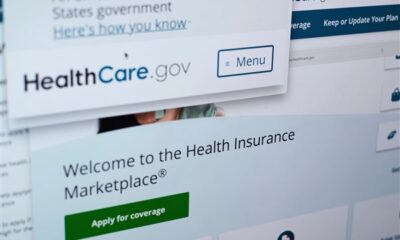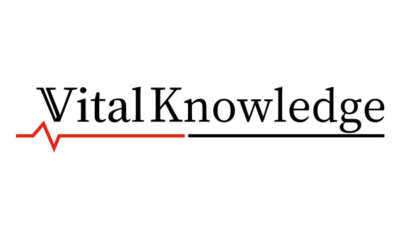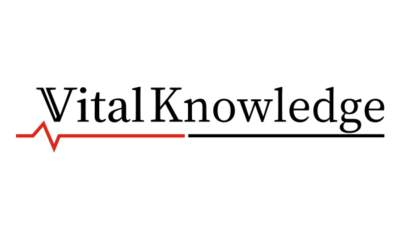Science
AI in Healthcare: Can It Outperform Human Doctors?

A growing body of research suggests that artificial intelligence (AI) could significantly improve healthcare outcomes, potentially outperforming human doctors in critical areas of diagnosis and treatment. Charlotte Blease, an associate professor at Uppsala University in Sweden and a researcher in the Digital Psychiatry Program at Harvard Medical School, highlights these possibilities in her new book, Dr. Bot: Why Doctors Can Fail Us—and How AI Could Save Lives.
Blease emphasizes that human fallibility is a significant issue in medicine. Each year, medical errors contribute to over 250,000 fatalities in the United States alone, with misdiagnosis accounting for approximately one-third of these deaths. Alarmingly, people often encounter diagnostic errors at least once in their lives. In Europe, around 22 million patients with rare diseases lack a diagnosis, while 8 million patients wait an average of a decade for one. In low- and middle-income countries, the misdiagnosis rates may be even higher.
Challenges Facing Healthcare Professionals
Blease points out the overwhelming pressures faced by healthcare providers. A staggering 50% of doctors in the U.S. report experiencing burnout, with 20% suffering from depression. Each year, an estimated 300 to 400 doctors take their own lives, equivalent to an entire graduating class of a medical school.
The United Nations predicts that by 2037, the world’s population will increase by a billion, intensifying the demand for healthcare services. With the average medical research article published every 39 seconds, the challenge for doctors to stay updated is immense. Blease notes that it takes about 17 years for medical research to transition from the lab to clinical practice, and much of what medical students learn becomes outdated by graduation.
AI as a Solution
The advent of AI in healthcare presents a unique opportunity to address these challenges. Unlike their human counterparts, AI systems do not suffer from fatigue or stress. They can process vast amounts of data rapidly and consistently. Preliminary studies show that AI tools have the potential to outperform human doctors in clinical reasoning, particularly in identifying complex medical conditions.
In one notable study, an AI chatbot accurately diagnosed 90% of rare diseases from clinical cases, significantly surpassing the performance of participating doctors. This capability could be transformative for the estimated 1 in 10 people globally living with a rare disease.
AI also holds promise in reducing biases prevalent in healthcare. Research has shown that AI can sometimes reflect societal prejudices, leading to algorithmic discrimination. For instance, a 2024 study found that AI was less likely to diagnose conditions in women compared to men or recommend appropriate scans based on race. Blease argues that while AI may have biases, addressing these is likely more achievable than changing ingrained biases in human practitioners.
Patient Engagement with Technology
Interestingly, patients have shown a tendency to engage more openly with technology than with human doctors. Blease cites a historical example from 1966, when a patient expressed a preference for discussing health matters with a computer over a physician. Research indicates that patients often disclose sensitive information more freely to machines, which may facilitate more accurate assessments and diagnoses.
As healthcare systems grapple with increasing demands and limitations, the integration of AI could redefine patient care. By leveraging AI’s capabilities, healthcare professionals can enhance their diagnostic accuracy and patient interactions, ultimately leading to improved health outcomes.
As Blease’s insights illustrate, the potential for AI to revolutionize healthcare is significant. While the notion of entrusting medical decisions to machines may seem unsettling, the evidence suggests that AI could be a valuable ally in the quest for safer and more effective healthcare.
-

 Technology5 months ago
Technology5 months agoDiscover the Top 10 Calorie Counting Apps of 2025
-

 Technology2 weeks ago
Technology2 weeks agoOpenAI to Implement Age Verification for ChatGPT by December 2025
-

 Health3 months ago
Health3 months agoBella Hadid Shares Health Update After Treatment for Lyme Disease
-

 Health3 months ago
Health3 months agoErin Bates Shares Recovery Update Following Sepsis Complications
-

 Health3 months ago
Health3 months agoAnalysts Project Stronger Growth for Apple’s iPhone 17 Lineup
-

 Technology5 months ago
Technology5 months agoDiscover How to Reverse Image Search Using ChatGPT Effortlessly
-

 Technology3 months ago
Technology3 months agoElectric Moto Influencer Surronster Arrested in Tijuana
-

 Technology2 months ago
Technology2 months agoDiscover 2025’s Top GPUs for Exceptional 4K Gaming Performance
-

 Technology5 months ago
Technology5 months agoMeta Initiates $60B AI Data Center Expansion, Starting in Ohio
-

 Technology5 months ago
Technology5 months agoRecovering a Suspended TikTok Account: A Step-by-Step Guide
-

 Health5 months ago
Health5 months agoTested: Rab Firewall Mountain Jacket Survives Harsh Conditions
-

 Lifestyle5 months ago
Lifestyle5 months agoBelton Family Reunites After Daughter Survives Hill Country Floods





















